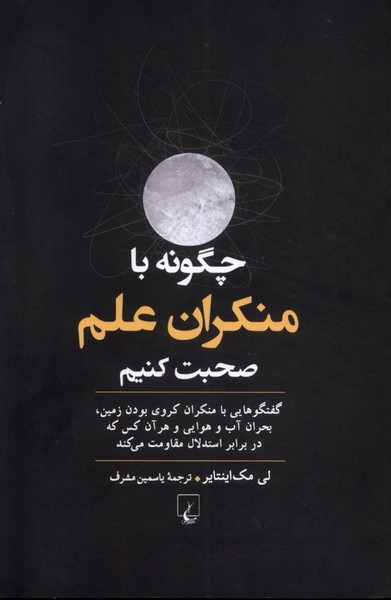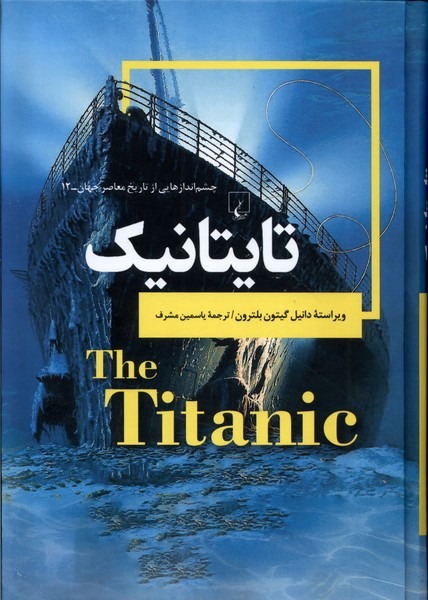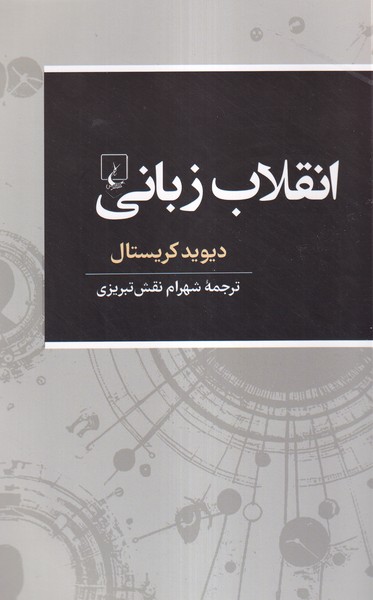Chigūnah bā Munkirān-i 'Ilm Ṣuḥbat Kunīm: Persian 1403
چگونه با منکران علم صحبت کنیم
169 SEK
Share
Wishlist
Original Title:
How to Talk to a Science Denier: Conversations with Flat Earthers
,
Climate Deniers
,
and Others Who Defy Reason
ISBN:
9786220405382
Translator:
Yāsamīn Musharaf
Publisher:
Quqnus
Age Group:
Adult
Pages:
400
Weight:
382 g
Dimensions:
14 x 21 x 3.6 cm
Book Cover:
Paperback
Can we change the minds of science deniers? Encounters with flat earthers, anti-vaxxers, coronavirus truthers, and others.
"Climate change is a hoax--and so is coronavirus." "Vaccines are bad for you." These days, many of our fellow citizens reject scientific expertise and prefer ideology to facts. They are not merely uninformed--they are misinformed. They cite cherry-picked evidence, rely on fake experts, and believe conspiracy theories. How can we convince such people otherwise? How can we get them to change their minds and accept the facts when they don't believe in facts? In this book, Lee McIntyre shows that anyone can fight back against science deniers, and argues that it's important to do so. Science denial can kill.
Drawing on his own experience--including a visit to a Flat Earth convention--as well as academic research, McIntyre outlines the common themes of science denialism, present in misinformation campaigns ranging from tobacco companies' denial in the 1950s that smoking causes lung cancer to today's anti-vaxxers. He describes attempts to use his persuasive powers as a philosopher to convert Flat Earthers; surprising discussions with coal miners; and conversations with a scientist friend about genetically modified organisms in food. McIntyre offers tools and techniques for communicating the truth and values of science, emphasizing that the most important way to reach science deniers is to talk to them calmly and respectfully--to put ourselves out there, and meet them face to face.
more
کتاب «چگونه با منکران علم صحبت کنیم؟» نوشته لی مک اینتایر، شامل راهبردهای عملی برای تعامل با کسانی که اجماع علمی را رد می کنند. مک اینتایر، محقق مرکز فلسفه و تاریخ علم در دانشگاه بوستون، از تجربیات و تحقیقات آکادمیک خود استفاده می کند تا راهنمای جامعی در مورد این موضوع مهم که در دوران معاصر شایع شده است، ارائه دهد. کتاب با ذکر تجربۀ برخوردهای شخصی مک اینتایر با منکران علم، از جمله بازدید او از یک همایش «زمین تخت» آغاز می شود. مک اینتایر پنج ویژگی کلیدی مشترک در همه اشکال انکار علم را شناسایی می کند: 1. استفاده انتخابی از دادههایی که از اعتقادات فرد پشتیبانی میکنند در حالی که شواهد متناقض را نادیده میگیرند، 2. اعتقاد به تئوریهای توطئه، یعنی فرض اینکه اجماع علمی یک توطئه است تا یک تحلیل عینی و واقعی، 3. اعتماد به افرادی که ادعای تخصص دارند و نه کسانی که واقعا متخصصاند، 4. استفاده از استدلالهایی که به لحاظ منطقی مغالطه بوده یا ناقصاند و 5. مطالبۀ یقین مطلق از علم، که ذات علم که احتمالی است را نادیده میگیرد. مک اینتایر تأکید می کند که انکار علم فقط به معنای نادانی و جهل نیست، بلکه اغلب شامل هویتبخشی به افراد است. به بیان وی ارتباط موثر با منکران علم مستلزم درک این عوامل روانی و طرح گفتگویی همراه با همدلی و احترام است. استراتژی های نویسنده برای مواجهه با منکران علم عبارتند از گوش دادن فعالانه، ایجاد اعتماد در آنها، یافتن زمینههای مشترک، استفاده از داستانها و قیاس ها و صبر و پشتکار. مک اینتایر در سرتاسر کتاب نمونه هایی از این که چگونه این استراتژی ها را می توان در موقعیت های دنیای واقعی به کار برد، ارائه می دهد. او تلاشهایش برای متقاعد کردن افرادی که به تخت بودن زمین معتقد بودند، بحثهایش با معدنچیها درباره تغییرات آبوهوایی و گفتوگو با یک دوست دانشمند درباره موجودات دستکاریشده ژنتیکی (GMOs) را بازگو میکند. این داستانها چالشها و موفقیتهای تعامل با منکران علم را نشان میدهند. به طور کلی، این کتاب با توجه به شایع شدن انکار علم در دوران معاصر، شایستۀ توجه است و خواندن آن برای همگان میتواند مفید باشد.
more















